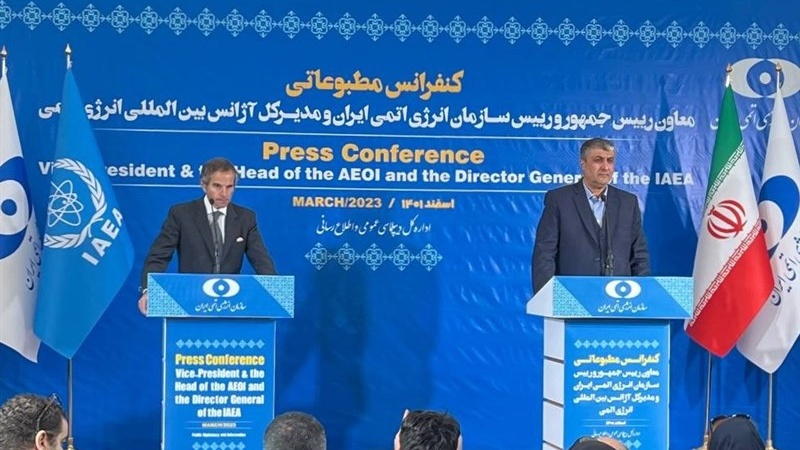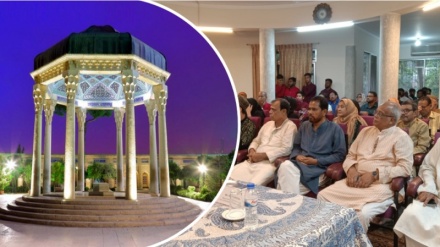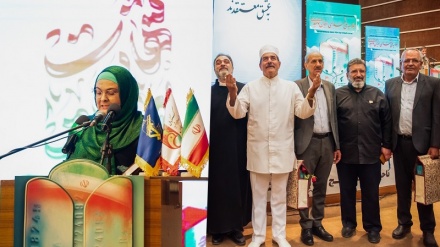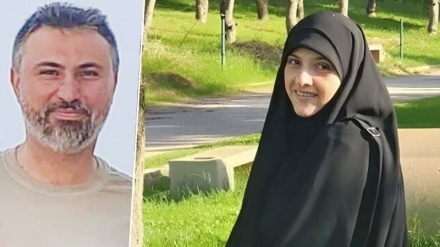IAEA chief: Any military attack on nuclear facilities is 'illegal'
Head of the International Atomic Energy Agency (IAEA) Rafael Grossi says any military attack on nuclear facilities is outlawed, responding to US and Israeli threats to target those in Iran.
Grossi made the remarks in Tehran Saturday, in a joint news conference with the head of the Atomic Energy Organization of Iran Mohammad Eslami who urged the IAEA to help build trust.
“There are two separate issues in this regard. First, attacks on nuclear power plants have unfortunately become common, and this is due to the war in Ukraine. Second, these attacks have been condemned during the Agency's public conferences. So I think that the attack on nuclear facilities is totally condemned and illegal,” Grossi said.
He is visiting Tehran after Western reports claimed that IAEA inspectors had found 84% enriched uranium in Iran - an allegation Tehran has rejected.
Eslami told reporters that the Islamic Republic is enriching uranium up to 60% fissile purity.
Grossi said he had "constructive discussions" with Iranian officials that could pave the way for the revival of a landmark 2015 agreement to bring the US back to compliance and remove sanctions on the Islamic Republic.
"By having a constructive discussion, like we are having now, and having good agreements, like I am sure we are going to have, we are going to be paving the way for important agreements," he said.
Eslami called for the remaining signatories of the Joint Comprehensive Plan of Action (JCPOA), namely France, Britain, Germany along with China and Russia, to fulfill their obligations.
"Three European and some other countries are just focusing on Iran's JCPOA obligations," he said. "They too have obligations that they need to adhere to."
Eslami said, "We came to an arrangement (with Grossi) to define our cooperation within the framework of the safeguards."
He called on the UN nuclear agency to avoid being swayed by those who aim to hinder cooperation between the two sides.
“We must be able to resolve issues in a trustful manner and prevent the entry and penetration of the elements and agents whose purpose is to disrupt a normal and professional relationship,” he added.
Eslami called on the IAEA to prepare for a sort of interaction, by which the agency "can always maintain its duties toward Iran's nuclear program within the framework of the Safeguards Agreement”.
He touched on Iran's scientific research and nuclear technology capabilities, saying the country is ready to share its achievements with other countries.
Grossi said talks were ongoing with Iran on two sets of important matters including the science sector, and there was "great expectation" about the process.
"Globally speaking, there are two sets of matters that are important. Clearly, there is great expectation about our joint work in order to move forward in the issues that Iran and the agency are working on, to clarify and to bring credible assurances about the nuclear program in Iran," he said.
"The second set of issues, which is very important, has to do with scientific, technical cooperation we are having and will continue to have with Iran," he added.
Grossi met later on Saturday with Foreign Minister Hossein Amir-Abdollahian, the Islamic Republic News Agency (IRNA) reported.
The IAEA chief said it was an “issue of necessity to have a very deep, serious systematic dialogue with Iran".
"This is why I am here. It’s been too long," he said, adding he would "judge our degree of satisfaction at the end of the day".
Ahead of Grossi's arrival, spokesman for Iran's nuclear energy agency Behrouz Kamalvandi said, "It is hoped that this trip will form the basis for greater cooperation and a clearer horizon between Iran and the IAEA."
MG



